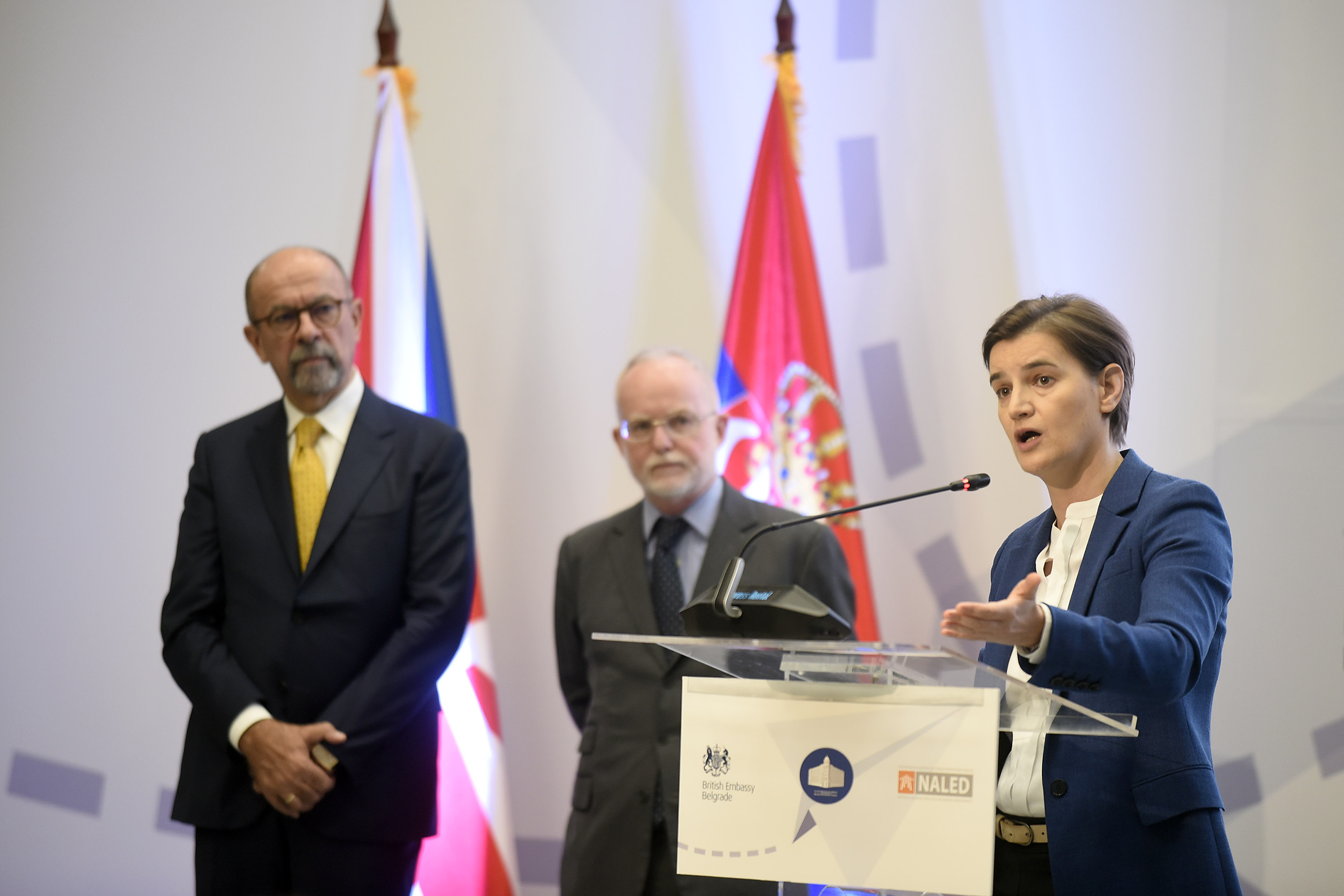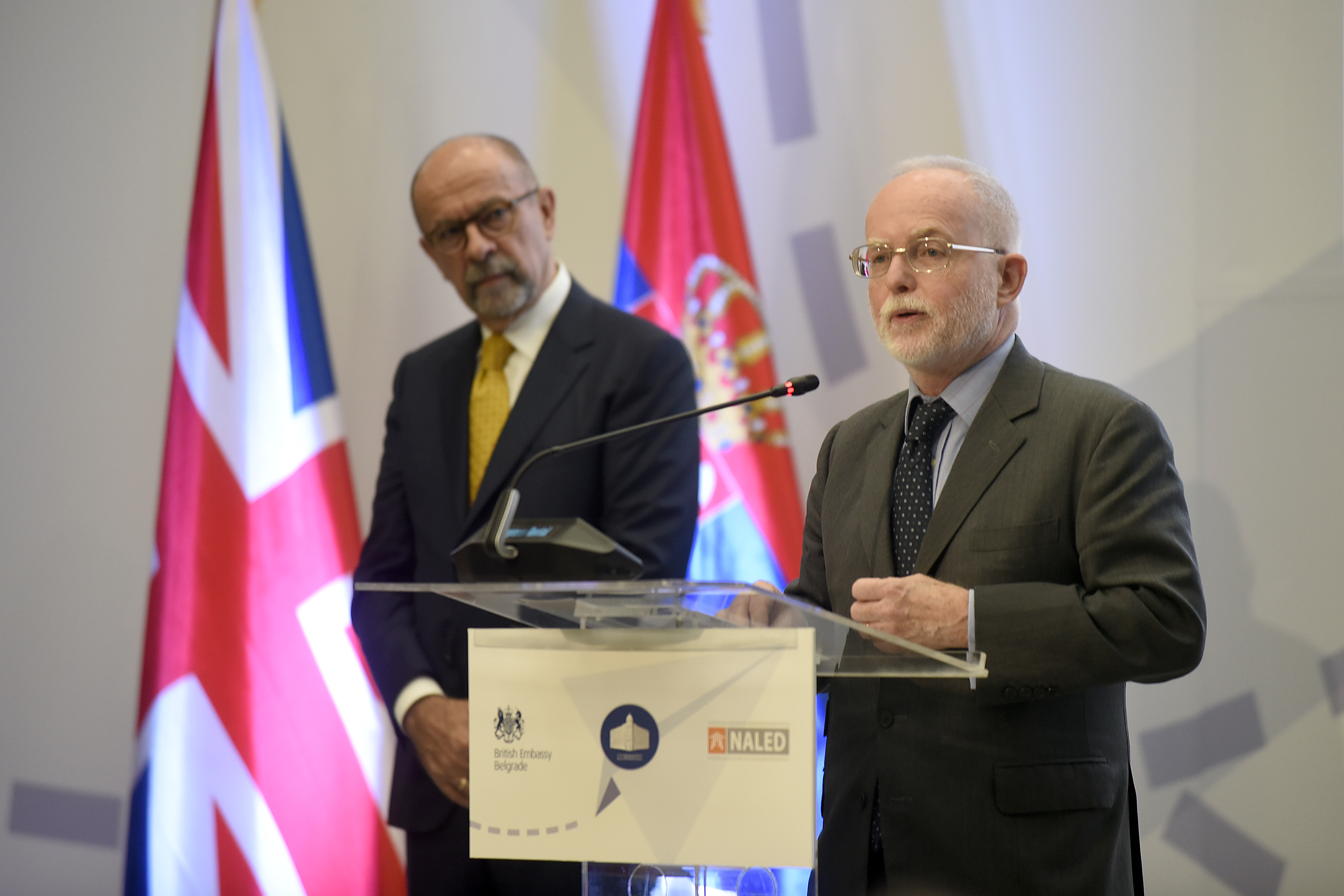With the support of UK Government’s Good Governance Fund, the legal framework
has been rounded up for the development of e-business in Serbia
The first day of October brought about a major turning point for the business environment in Serbia, as businesses can no longer be imposed an obligation to use a stamp, while a tax exemption measure has been introduced for new businesses during their first year of work. The beginning of this month also marked the completion of the project „Towards a paperless administration“, implemented with the support of the UK Government’s Good Governance Fund, rounding up the regulatory framework for the development of e-business.
The three significant achievements have been marked within the conference in the National Museum, organized by the Government of Serbia, the British Embassy and NALED. One of the conference conclusions is that the speed of e-business development will depend on the state and local institutions’ readiness to embrace the new model of work that excludes papers, as well as companies which would offer the so-called trust services, and enable other businesses to use e-signature, electronic storage and archiving of documentation.

– The speed of introducing e-government is what will make a difference in improving the competitiveness of our state, our standard of living and salaries, and e-government is hence one of the top priorities of the Government of Serbia. After this project, the next major step is to introduce archiving of e-documents, and by the year end, we will propose the Bill on Archiving and Archive Material to the Parliament, with the aim to leave the practice of printing papers and renting storage rooms to history – said the Prime Minister of Serbia Ana Brnabić in her opening speech within the conference.
According to her, today is a great day for Serbian businesses, with the use of stamp finally going to history. Brnabić expressed hope that eliminating stamps in commercial relations will soon show that use of stamps is not needed for state institutions either. She added that 1 October is also a major day for entrepreneurship, adding that, if the tax exemption measure for new businesses proves to be useful, it will be expanded to additional categories in the year to come.

British Ambassador Denis Keefe highlighted the contribution of the project „Towards a paperless administration“, as well as the overall contribution of the British Embassy and the UK Government towards the development of e-government in Serbia. So far, projects worth 12.5 million EUR have been approved through the Good Governance Fund, of which 5.2 million is allocated for supporting a more transparent and efficient government.
– Within the project we supported the drafting of 12 by-laws regulating electronic archiving, while 141 public officers went through the required training. The savings for the state and businesses, in terms of printing, storing and keeping paper documents, are measured in million. I will tell you that one state institution, only, annually produces up to 20 million pages of various documents, which results in destroying a forest with 1,300 trees. The cost of staff that manages these documents are approximately a million euros, while renting and maintenance of storage space costs around 100,000 EUR – said Keefe.

The President of NALED’s E-Government Alliance Željko Tomić stressed that a part of the project also involved the analysis of 39 regulations governing the most frequent business processes performed by companies and institutions, such as bookkeeping, issuing invoices, sales activities, issuing certificates or tax procedures.
– We determined that there are 22 regulations that need to be changed as, if we seek to develop the e-business in Serbia, we need to eliminate certain terms from our legislation, such as the phrases an original, a photocopy, submitting evidence of payment, handing or direct insight into a document given that, in practice, they imply a need for visiting counters and a personal contact between a businessman and a public officer, even though there is no need for this in 95% cases. The foundation for this was laid by the Law on General Administrative Procedure which enabled institutions to obtain and exchange data from their records on their own, this saving more than 500,000 hours of courier work the citizens used to do for the state, which amounts to 57 years of waiting in lines – said Tomić.


The project also involved the campaign „Ask WHEN we will get rid of excessive papers “ aimed at raising awareness among citizens, businesses and public officers about the benefits of transitioning to e-business and e-documents. Along with all regulations, video instructions on e-business and e-glossary, the portal www.pitajtekada.rs provides information about the procedures nominated and voted by citizens as the priority issues for digitalization.
Most votes were assigned to procedures for issuing certificate of paid taxes, paying fees to public institutions, changing last name and place of residence in the ID, issuing invoices, obtaining international driving license, electronic filing of lawsuits. The E-Government Alliance will prepare a recommendation for digitalization of the best-rated procedures, which will be included in NALED’s Grey Book and submitted to the Government to initiate their resolution.